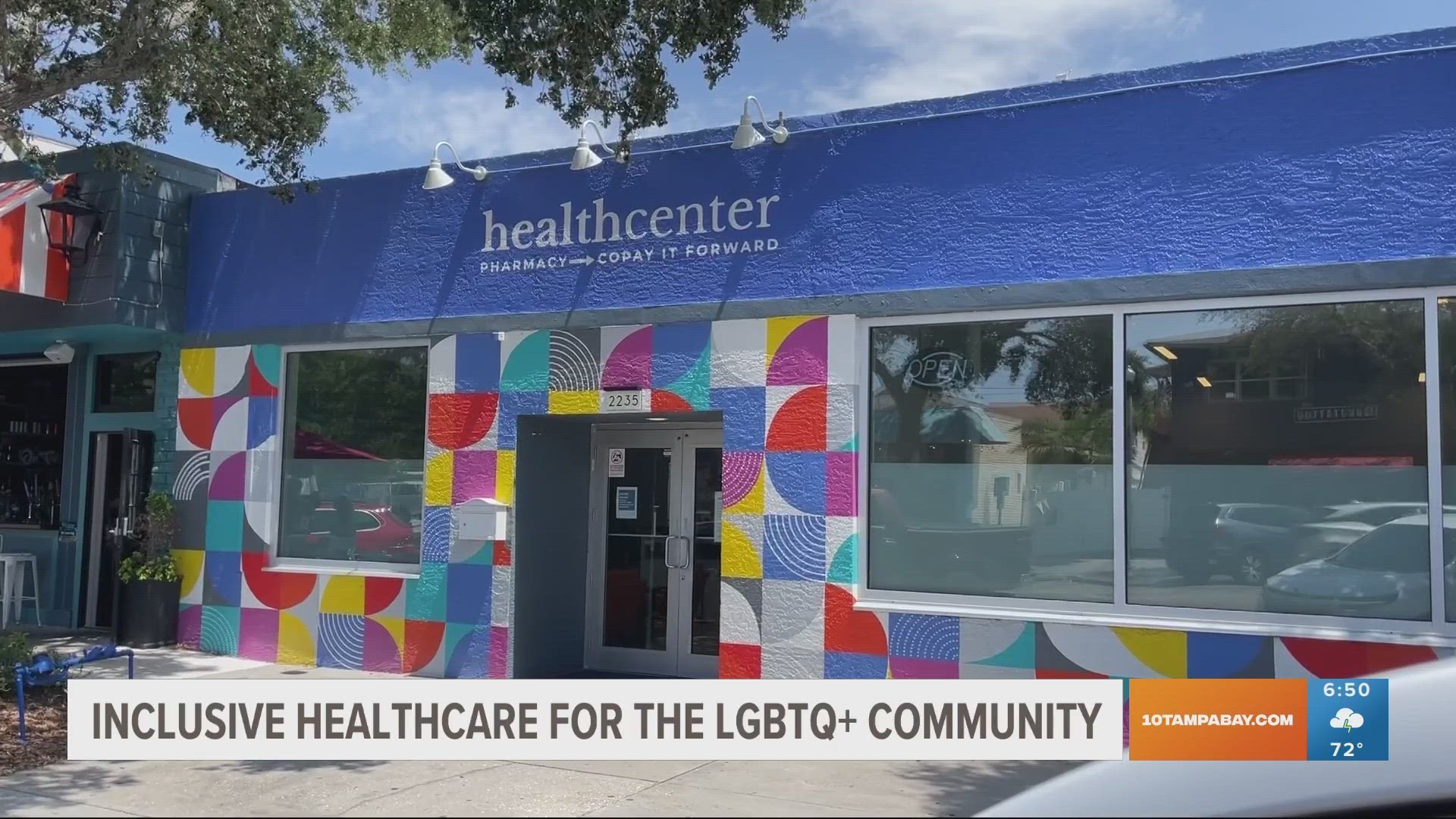PINELLAS COUNTY, Fla. — Metro Inclusive Health has a daily mission to provide healthcare options to patients who often feel misunderstood and underrepresented.
The non-profit was established in 1993 to provide inclusive health and wellness services and this year it’s expanding into the Tampa Bay area communities that it serves.
Rosbie Thompson has been coming to Metro for four years and says word of mouth brought him through the doors initially.
“I heard about Metro through a friend, and it just seemed like the place to go. I met Jesse, my Prep navigator," Thompson said. "He was off-the-bat hilarious, really got me to drop my walls down. We talked about very uncomfortable topics, but he did so in a way that made me feel at home.”
That welcoming feeling and atmosphere are what Brian Bailey, Metro’s chief marketing and business development officer, says is key to its success.
“At one point or another we all have to go to a doctor and have a conversation that’s a little uncomfortable, right? Take the fact that you’re a member of that LGBTQ+ community and it’s a whole other level of discomfort. So, it really helps to have someone, like I said, for lack of a better expression, that speaks your language,” Bailey explains.
Metro wrapped up a 2019 study on patient data and found the demand for its inclusive care was expanding well outside its walls in Tampa and St. Petersburg.
“We knew that we had patients coming from as far as north Tampa, Brandon, Hernando county, South of the Skyway,” Bailey said.
With that information in mind, Metro is making moves to smaller locations in area communities, meeting the demand where it is right now. By the end of the year, there will be eight Metro locations from New Port Richey to south St. Pete with spots like Brandon and Seminole Heights in between.
“We have everything from primary care to specialty care, prevention to HIV care but we also have now our own pharmacy,” Bailey explains.
He says because of savings as a non-profit, the billing to insurance companies from Metro’s fully insured patients, helps pay forward care for those who are uninsured. Thompson has benefited from both, after leaving a job to return to school and losing his healthcare insurance.
“I thought it would cost an arm and a leg and it actually didn’t cost me a dime to continue on my Prep," Thompson said.
For more information about Metro and its expansion plans, visit https://www.metrotampabay.org/.

